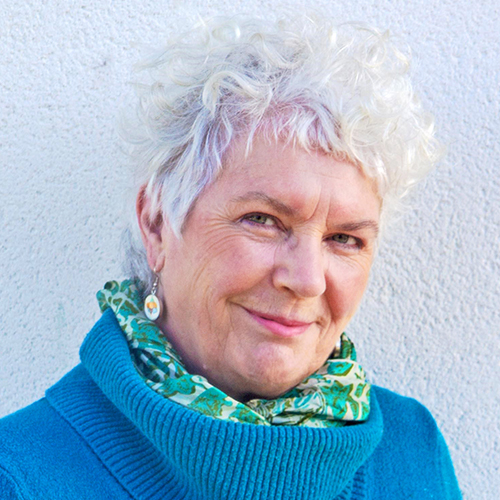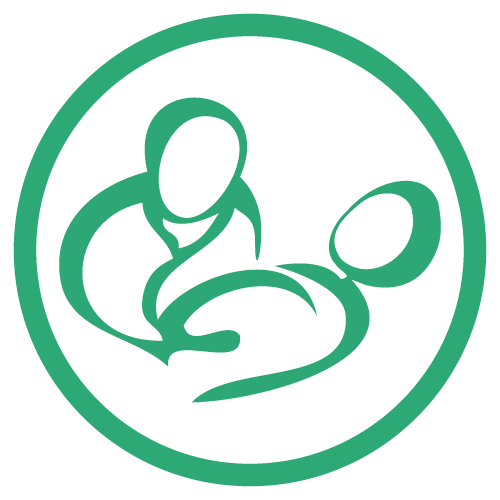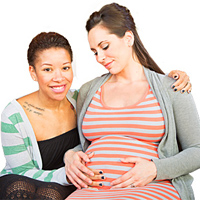 Pregnancy, Labour & Childbirth Online Course(s) & Continuing Education
Pregnancy, Labour & Childbirth Online Course(s) & Continuing Education
Access the latest clinical skills and research for Pregnancy, Labour & Childbirth for IBCLC/Lactation Consultants professional training. These Pregnancy, Labour & Childbirth online courses provide practice-changing skills and valuable perspectives from leading global experts. This Pregnancy, Labour & Childbirth education has been accredited for a variety of CEUs / CERPs and can be accessed on-demand, at your own pace.
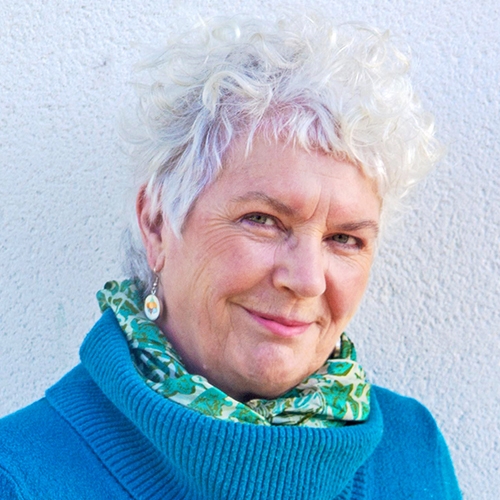
Resolving Labour Dystocia Through Improved Understanding of Birth Biomechanics

Molly O’Brien is an experienced midwife, with more than 20 years of clinical practice and has attended over a thousand births. She is also a hypnobirth and birth preparation teacher, an associate university lecturer, has created courses for midwives, campaigned for midwife led birth units and been a passionate student and enabler of normal physiological birth. She has worked in all areas of midwifery. Her favorite work was in the home environment and a Midwife Led Birth Unit. It allowed her to attend hundreds of undisturbed physiological births. It also gave her the opportunity to make a systematic exploration of midwifery skills and observations that can help resolve long difficult labours caused by a suboptimal position. The techniques and strategies that emerged from this time helped her revolutionize her own practice. She began to regularly witness dramatic progress as she put them to use in “difficult labours”. Now she teaches the course she developed for Birth Professionals, ‘Biomechanics for Birth’. She also taught for a master's course at the City of London College and runs a 3000 strong Facebook group Biomechanics for Birth for birth and women’s health professionals that carries a lively and informed discussion on a wide range of women's health issues.
In order to resolve labor dystocia in an effective and holistic manner, a deeper understanding of pelvic anatomy and physiology is required. Pelvic dynamics, the mechanical relationship between the pelvis and the rest of the body, and the dynamic interaction of the mother/baby dyad offer the chance to view birth through different eyes. This knowledge can help the health care provider to recognise activities and lifestyles that increase the chances of labour dystocia. Furthermore, this understanding will help providers identify signs of a mechanical disruption during the birth process. This presentation will offer timely techniques and positions, based on the principles of biomechanics, that increase space in the pelvis and avoid medical intervention.

View Details / Enroll


Molly Dutton-Kenny is an American & Canadian midwife. Trained in the USA in community homebirth midwifery, she now makes Canada her home and practices as a Registered Midwife with her loving family & community. She supports education for midwifery students through National Midwifery Institute, and community education around full spectrum pregnancy loss and abortion, respectful pelvic exams, and midwifery-based management and support of these experiences, centering home and holistic medicine as options for most people. You can read more about her work at www.mollyduttonkenny.com.
Pelvic Exams are so commonplace in midwifery practice that we often fail to appreciate their significance in our client’s lives. Pelvic exams have the potential for both trauma and trust-building in the midwife-client relationship.
Trauma manifests in our clients lives and bodies in a myriad of ways. Statistically, a majority of our clients have experienced various direct traumas in their lives, with a significant portion focused on pelvic trauma & assault. Additionally, clients hold the epigenetic trauma from historical wrongs in gynecology and treatment of bodies in various lineages as a result of white supremacy and toxic patriarchy.
All bodies deserve respectful care. When done carefully, pelvic exams have the potential to be safe, trust-building experiences with the benefit of seeking key medical information. Together, we will interrogate the common pelvic exam from a trauma-informed lens and consider our practices carefully. We will build strategies for respectful pelvic exams, including managing pain & anxiety in clients, what to do when clients do (and don’t!) disclose past trauma, avoiding triggers, and consider modifications to our own practices.
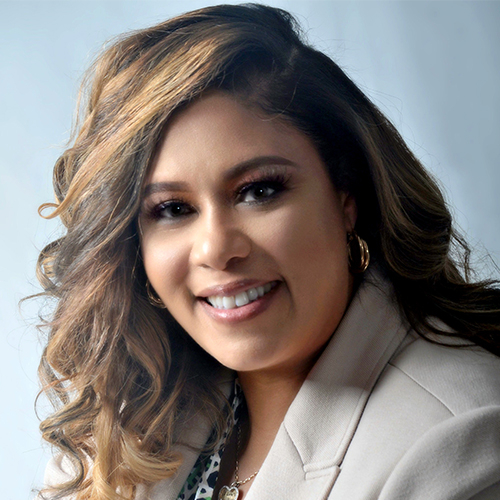
Sharpening Your Knowledge of Fetal Heart Monitoring Concepts

Lashea has been practicing in the area of obstetrical/perinatal nursing for nearly 26 years. Her clinical and educational experience and expertise span labor/delivery, antepartum and mother/baby areas. Lashea has worked as a board-certified clinical nurse specialist for women’s services at a large healthcare system, she was a nursing instructor and a previous perinatal outreach educator. These roles allowed her the ability to provide continual high-risk perinatal education to various hospitals and to reach audiences across her region. This has led to her current role and success as founder and owner of her own nursing mentoring and education consulting company Perinatal Potpourri. She is also a Designated Instructor Trainer in Fetal Monitoring and Obstetric Patient Safety through AWHONN. Lashea holds two certifications through NCC and currently provides in-services and seminars nationally for Inpatient OB and EFM reviews, respectively.
In addition to being an active AWHONN member, Lashea was recently elected as the Vice Chair of the AWHONN Section Advisory Committee. She was appointed to this position because of her activism and success as the 2-term elected Georgia section chair. LaShea was appointed as the lead for Georgia in the AWHONN Postpartum Hemorrhage & Empowering Women projects. She was selected as the lead facilitator in the state of Georgia to assist with the rising rate of maternal deaths because she has successfully moved her region to become more active with lectures, networking, and current trends. Lashea’s expertise in this area is demonstrated in her most recent honor, AWHONN's highest honor the Distinguished Professional Service Award Winner of 2022 and The Award of Excellence in Education, respectively. It's also noteworthy to mention she has won the March of Dimes 2018 Georgia Nurse of the Year Award and the 2015 AWHONN Award of Excellence in Community Service. She is an energetic speaker, whose goal is to fully engage the audience in her presentations, leaving them excited and ready to learn more.
This presentation will assist labor & delivery nurses in sharpening their skills and foundation for interpreting fetal heart monitoring tracings. Beginning with a brief review of the basic physiology of acid base interpretation, we will discuss appropriate terminology for electronic fetal monitoring (EFM) using the terminology established by the National Institute of Child Health and Development. We will compare and contrast categories of fetal heart rate patterns and discuss their associated interventions. Finally, we will establish a core set of elements for creating a plan with the patient and care team for the physiologic management of the second stage of labor. This presentation offers labor and delivery nurses the opportunity to ensure their ability to read and respond to EFM during labor is up to date and consistent with national and international guidelines.

Shoulder Dystocia: Prediction, Prevention, and Appropriate Response

Renowned expert Elizabeth Davis has been a midwife, reproductive health care specialist, educator and consultant for over 40 years. She is internationally active in promoting physiologic, undisturbed birth and is widely sought after for her expertise in midwifery education, legislation, and organizational development. She is the author six widely translated books on birth, sexuality, and female psychology, including “Orgasmic Birth: Your Guide to a Safe, Satisfying, and Pleasurable Birth Experience,” “The Rhythms of Women’s Desire: How Female Sexuality Unfolds at Every Stage of Life,” and the textbook “Heart & Hands: A Midwife’s Guide to Pregnancy and Birth,” now in an updated 2019 5th edition (see https://elizabethdavis.com for details). She served as Regional Representative and Education Committee Chair for the Midwives Alliance of North America (MANA), as President of Midwifery Education Accreditation Council (MEAC), and as midwife consultant to the State of California’s Alternative Birthing Methods Study. She is the recipient of the California Association of Midwives’ Brazen Woman Award, and Midwifery Today’s Lifetime Achievement Award. She is Co-founder of the MEAC accredited National Midwifery Institute, and author/instructor of Heart & Hands Coursework.
Shoulder dystocia is considered one of the most dangerous complications of birth, as corroborated by the high number of malpractice claims resulting from it. Despite this, experts cannot agree on what defines it, what causes it, or whether or not it is possible to predict it. As for treatment, the HELPERR mnemonic is standard of care, but is this truly the best response with fully mobile clients, or does it reflect the limitations of hospital birth with epidural anesthesia?
In this presentation, the physiology of undisturbed birth, including cardinal movements the baby must accomplish to minimize the likelihood of shoulder dystocia developing, will be explained, with an examination of how common hospital practices, such as the use of Pitocin during labor or maternal positioning in second stage, can undermine these. Because this complication carries a high degree of urgency, time-efficient techniques will be presented for both anterior shoulder dystocia and bilateral shoulder dystocia, with indications for follow up for the birthing person and the newborn.
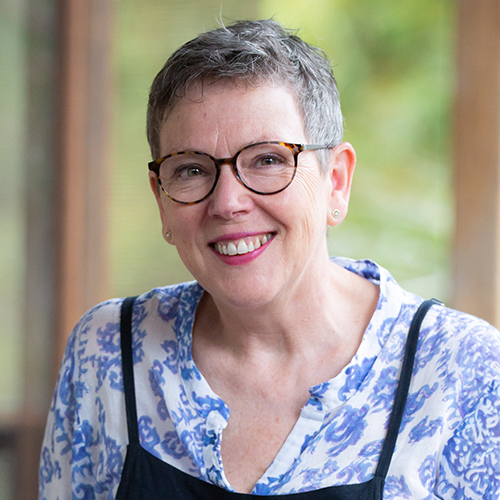

Fiona has been a midwife for 32 years. She is also a registered nurse and maternal & child health nurse, a birth educator and bodyworker. She has worked in Melbourne public and private birthing hospitals and has supported many families with the birth of their babies at home and in hospital. Interwoven throughout her midwifery practice has been an involvement in midwifery education and the teaching of Birthwork Workshops. The focus of all birth related teaching is on the dynamic pelvis and how to make space for the baby. Fiona is also a Spinning Babies® Approved Trainer. When not teaching workshops, Fiona offers bodywork sessions to women in a 1:1 capacity, with particular emphasis on internal pelvic release work. She has been instrumental in establishing the Internal Pelvic Release Work Mentoring Program in Australia. Fiona’s drive to teach is fuelled by a desire to see childbearing women hold birth knowledge, learn to honour their pelvic treasures and work with their innate power and in so doing, eradicate birth trauma. Fiona lives in Melbourne, Australia.
Topic: The Issues in the Pelvic Tissues and Some Possible Solutions - [View Abstract]
So much emphasis has been placed on the bones of the pelvis – the space they can create for birth and the problems they cause. Cephalo Pelvic Disproportion (CPD) seems to be a term all too readily used to justify yet another woman having her baby born by caesarean section. It seems strange that nature has created so many mother/baby mismatches!
Commonly, the pelvic soft tissues don't come into consideration when a mother’s pelvis is deemed too small for her baby’s head. And yet bones don’t move on their own. Bones provide structure and form and bony movements are driven by soft connective tissues. If the connective tissues are holding tension of known or unknown origin, it stands to reason that when that tension is addressed and released, the connective tissues may ‘sigh’ and greater movement of the bony frame could occur.
The presentation will explore what connective tissues influence pelvic space and movement, why connective tissues can hold tension and creative considerations to work with them.

View Details / Enroll
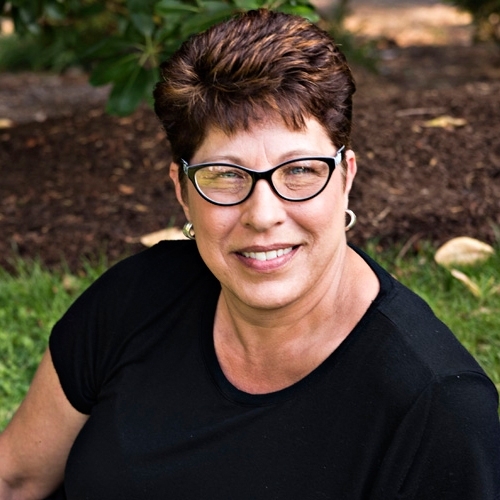

Tammy Ryan has been attending births since 2002. She is a birth doula trainer for DONA International, childbirth educator, midwifery assistant and one of six trainers world wide for Spinning Babies. Tammy has sat on the DONA International board of directors plus several other boards. She started working Internationally in 2008 when she went to DR Congo to train life saving skills in childbirth according to the World Health Organization. She has served in Haiti, Rwanda, Burundi, Tanzania, Kenya, Korea, Japan, India, Israel & Brazil. Tammy has presented childbirth information on several venues including international conferences, TV, radio, universities and to the Ministry of Health. She has been published in the quarterly International Doula and on several blogs. Tammy teaches When Survivors Give Birth as a way to help survivors and birth workers. Tammy has experienced first hand the barriers women face worldwide in getting adequate care in childbirth and postpartum.
By understanding the current research on the OP presentation the learner will be able to help improve unnecessary cesarean rates due to the lack of progress and/or maternal and newborn morbidity rates. They will learn simple maternal positions that will open each level of the pelvis so the baby can find room for decent and rotation.
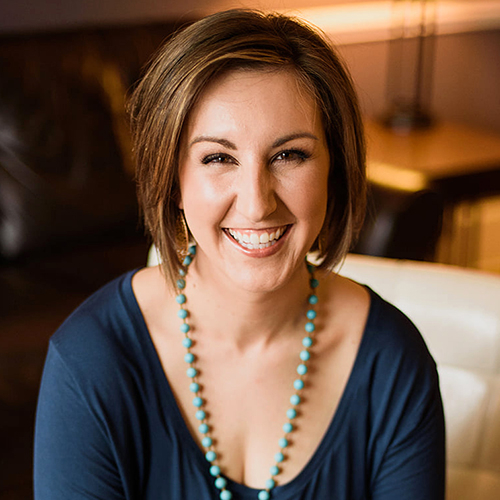
Stirrups Are Restraints: 5 Simple Steps to Overcome Barriers to Upright Pushing

Mandy Irby, pronouns are she/her, is a board certified labor nurse with 13 years of experience supporting survivors of assault and trauma through pregnancy, birth planning, and at their bedside during childbirth and pregnancy loss. After experiencing her own birth trauma, she quickly learned that the birth care system is NOT centered on human rights, patient choice, and the individual experience. In 2020, Mandy made education a full-time career. She now teaches and supports parents and nurses how to better center voice, choice, and physiology in birth. It's Mandy’s mission to change birth culture so that it's parent-centered, trauma-informed, and safe for all.
Mandy enjoys teaching in-person, in whole-team learning: Peanut Ball, Labor Support Skills and Trauma-Informed Care At the Bedside workshops. She also supports local parents with small-group Spinning Babies® Parent Classes when in-person learning is safest. Mandy is also an international educator through her online, on-demand childbirth ed classes and she supports anxious parents-to-be with virtual, one-on-one trauma-informed birth strategy sessions. She’s the co-founder of Fearless Birth, Delivered, founder and owner of The Birth Nurse®, and a proud co-creator of the BRAND NEW Trauma-Informed Birth Nurse Program. As a creative educator, Mandy is also the co-author of an Amazon best-seller, Baby Got VBAC, and reaches millions of viewers each month through her engaging, tongue-in-cheek social media platforms.
When she’s not working from home, Mandy might be found at any local plant nursery adding to her, some may say, out-of-control house plant collection. She’s a serial craft starter and non-finisher, loves walking her doodle puppy, and playing in the creek with her 2 kids.
Topic: Trauma-Informed Care: A Guide to Patient Advocacy for Trauma Survivors - [View Abstract]
All of the evidence, professional organizations, and birth physiology supports giving birth in a variety of positions but somehow, despite nurses' best efforts, most birth givers end up in a supine position. Learn the powerful, trauma-informed steps to advocate for your labor and birth patients in upright pushing positions. Join this lecture, discussion, and demonstration as we identify and demonstrate the 5 simple steps to overcoming these barriers to upright pushing.
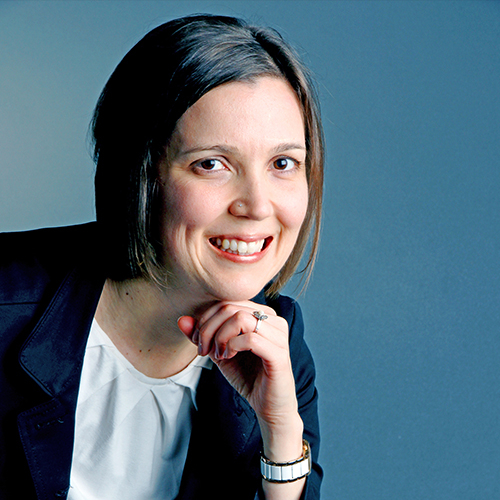
Supporting Parents Through Grief After the Loss of the Breast/Chestfeeding Relationship

Laurie-Anne Muldoon has supported families both as an RN and as a Social Worker in a variety of hospital, public health and community mental health settings in the U.S. and Canada for the last 25 years. She has felt privileged to have companioned many women, families and groups through their experiences of loss, upheaval and life transitions. Her passion for perinatal mental health was reignited following her own birthing and breastfeeding experiences with her son 11 years ago. Laurie-Anne brings her compassion and respect for human dignity to her work with parents transitioning into the world of parenthood. She is founder of The Ottawa Integrative Mental Health Collective. A proud Franco-Ontarian, Laurie-Anne was born and raised in Ottawa Ontario. She currently works in private practice specializing in perinatal mental health, birth trauma and loss.
For many mothers/lactating parents, their reasons for deciding to breast/chestfeed are often grounded in an effort to do what’s best for themselves and their child. Unfortunately, the reality is that on the road to trying to be the best parent they can be, breast/chestfeeding doesn’t always work out in the way that parents had hoped. In fact, sometimes it doesn’t work out at all. This loss can be deeply felt by a parent for a long time.
This presentation will explore what is at the heart of breast/chestfeeding grief and what distinguishes it from other types of grief. Lactation providers will also learn about several socio-cultural factors that amplify grief after the loss of the breast/chestfeeding relationship. Additionally, attendees will learn about some of the emerging data related to how the pandemic has impacted this type of grief. And lastly, we will take a closer look at how to respond more effectively to clients who are experiencing the loss of a breast/chestfeeding relationship with their child.
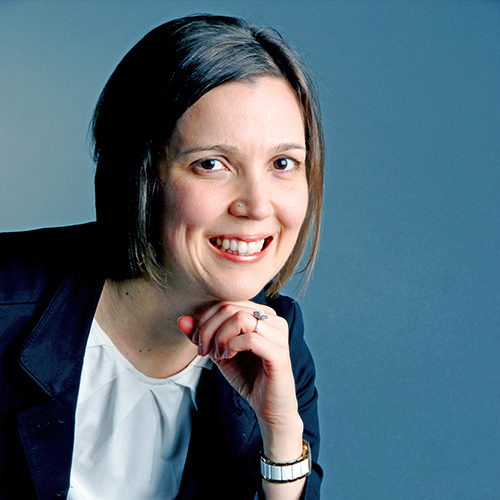
View Details / Enroll

The Ethics & Realities of Forced Cesarean Surgery

Jen Kamel is a VBAC strategist, national speaker, and founder of VBAC Facts®. VBAC Facts was born out of her own frustration as a cesarean parent attempting to understand the medical literature and political barriers surrounding VBAC. Her mission is to increase VBAC access through educational programs, legislative action, and amplifying the consumer voice. She envisions a time when every pregnant person seeking VBAC has access to unbiased information, respectful providers, and community support so they can plan the joyful birth of their choosing in the setting they desire. She travels the country presenting her signature program, “The Truth About VBAC” and speaking at various regional and national conferences, including Human Rights in Childbirth, DONA International, and the Indiana Midwives Association. She has testified multiple times in front of the California Medical Board on the importance of VBAC access and is a board member for the California Association of Midwives.
Are women forced into cesarean surgery? How is this possible? When does it happen? Why does it occur? And what do forced/coerced cesareans really look like? This session will explore the extreme disconnect between medical evidence, national guidelines, ethical responsibilities and the current maternity care system. We will focus on the role of hospital “VBAC bans” which restrict access to vaginal birth after cesarean and mandate repeat cesarean as well as the public health fallout of such policies. We will review how forced cesareans can occur in the face of national guidelines that denounce them while professional ethics simultaneously affirm and honor the autonomy of the pregnant person. Finally we will close with how we can turn the tide, create change, and improve the care our clients and children will ultimately receive.


Susan Winograd, PT, owns and operates a private Pelvic Health and
Wellness practice in Boca Raton, Florida called Pelvicore Rehab LLC.
She specializes in Woman's Health, Men’s Health issues, and
Pre and Postnatal Care.
She has earned a Scar Release therapy Certification from Acumed
and is certified in the Wurn Technique and Clear Passage Approach.
Susan earned a masters degree from the College of Staten Island in
1998. In her 22 years of clinical experience she has gained extensive
knowledge in the treatment of various populations such as orthopedics,
manual therapy, geriatrics, pediatrics and men/women's pelvic dysfunction,
and prenatal/postpartum care.
She has continued her post graduate educate through seminars with
The Herman and Wallace Institute, MPS Scar Release Therapy, Myofascial
Release, The institute for Birth Healing, Clear Passage Therapies, and is pursuing education in Cranial Sacral therapy with the Upledger Institute
and Total Body Balancing with the D’Ambrogio Institute.
Susan enjoys teaching workshops throughout South Florida on pelvic
health and wellness related topics.
Her hands-on treatment approach of treating the whole person has
often led her to discover the primary or contributing cause of pain,
dysfunction, or imbalance was pelvic floor related.
Her passion and commitment now is treating, healing, and educating
her patients and healthcare providers with pelvic floor dysfunction using a
whole body approach to relieve pain, restore optimal function, and
improve quality of life.
She is committed to providing the highest quality of individualized
that care that every patient deserves.
Topic: The Fourth Trimester: Postpartum Healing and Recovery - [View Abstract]
Topic: The Pelvic Floor and the Core; A Dynamic Duo - [View Abstract]
The third trimester is an exciting time for moms. There is much attention placed on her with the excitement and preparation of an upcoming birth. In the fourth trimester, the 12 weeks that follow birth, we often see this attention transition to focus on the newborns' needs by healthcare practitioners, family, friends, and of course by the mom. It is important to recognize that this is a critical time for mothers. They are struggling with sleeplessness, adapting emotionally and are in the active recovery phase of healing physically. In France, Sweden and other parts of the world, the healthcare system pays much closer attention to mom’s well being after birth. In many of these countries being assessed and treated by a pelvic health physical therapist is the standard of care. The American College of Obstetrics and Gynecology (ACOG) recently came out with recommendations for improved focus on maternal health. This includes emotional well-being, health maintenance, sexuality, and physical therapy as the standard of care and practice. We are still behind many other countries in maternal postpartum care but we are slowly making improvements. Midwives have the important opportunity to spread the awareness that every mom should get the postpartum care they deserve.



